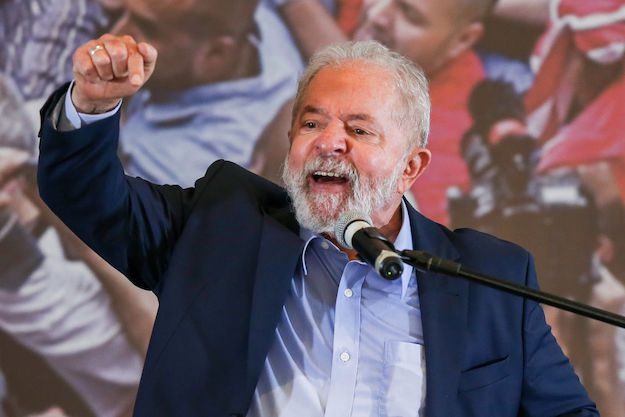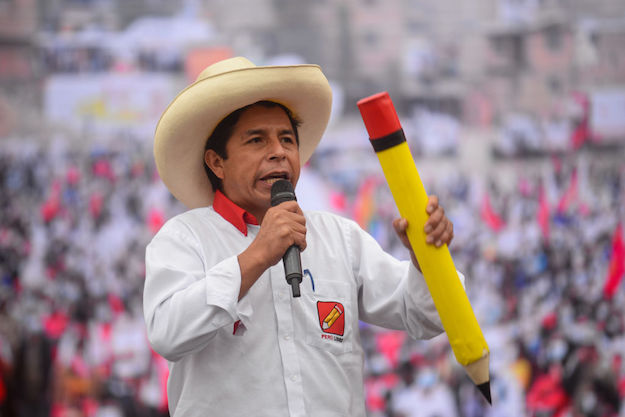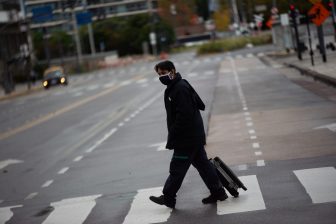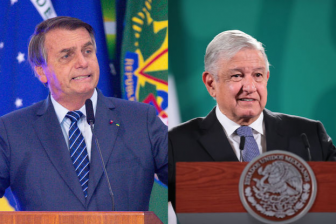It’s no secret that the Latin American left has a strongman problem. From Havana to Caracas to Managua, self-proclaimed socialists are notorious for taking office only to never step down. But while left-wing autocrats and their human rights abuses garner much media attention, an emerging crop of leftist politicians in Latin America poses a more insidious threat: they’re embracing regressive social values. If they continue to fail in elevating the causes of equality, diversity and individual freedom, the new leaders on the left will leave the region’s most vulnerable and underrepresented communities at great risk.
Socially progressive causes began to lose their luster in the mid-2010s, especially as evangelical groups with hardline stances on abortion and LGBTQ rights – and equipped with mega-churches – expanded as a voting bloc. Right-wing politicians like Brazil’s Jair Bolsonaro swept back into office, styling themselves as defenders of “traditional family values.” Donald Trump proved a convincing example to follow.
Now, after years spent championing the cause of women and minorities, Latin American leftists have veered to the right on social issues, leaning into traditionally conservative positions on gender equality, abortion access, LGBTQ rights, immigration, and the environment. The left’s conservative turn leaves marginalized communities bereft of their traditional political allies and jeopardizes freedom and safety. And if an economically populist yet socially conservative platform continues to prove a winning electoral formula, as it did earlier this month in Peru, regionwide poverty relief may ultimately come at the cost of individual rights.
On the gender equality front, evidence of this shift is everywhere. Mexico’s President Andrés Manuel López Obrador campaigned on rectifying the gender pay gap and gender-based violence. But rather than meeting with women protesting the country’s record-setting levels of femicide, López Obrador shut out the protesters’ chants by erecting a ten-foot-high wall around the presidential palace.
Peru’s new socialist president-elect, Pedro Castillo, chalked up his country’s femicide problem to male “idleness,” blasting what he calls “gender ideology” taught in Peruvian schools. And Ecuador, governed by leftist administrations for most of the last two decades, has among the strictest anti-abortion laws in the world. Rafael Correa, in office from 2007 to 2017, even pressured his own party to keep the abortion ban in place.
Despite the expansion of LGBTQ rights during a wave of left and center-left presidents in the early 2000s, these communities have fared poorly under some on the left.
While strongmen like Nicolás Maduro have never been shy about using homophobia for political gain, the Dominican Republic’s “social democrat” president, Luis Abinader, disappointed activists when he publicly rejected same-sex marriage protections under considerable pressure from religious leaders; he, too, has backtracked on liberalizing abortion access. El Salvador’s populist president, Nayib Bukele, who started his career on the political left as mayor of the country’s capital and once declared himself an “ally” to LGBTQ people, has since come out against marriage equality and stopped his government’s sexual diversity work.
Around the world, xenophobia against immigrants is often the calling card of the radical right. In Latin America, the inverse is sometimes true. López Obrador has militarized Mexico’s southern border, deploying tear gas and rubber bullets against Central American migrant caravans. Peru’s Castillo insists that undocumented migrants will be given 72 hours to flee the country after he takes office. And Argentina’s leftist president recently sparked outrage with his remark that “Brazilians emerged from the jungle but we Argentines arrived on boats. On boats from Europe.”
In Latin America, environmental policy is also a social issue because the costs of climate change land heavily on ethnic and racial minorities. Leftist politicians – who often rely on natural resources to achieve their priority of redistributing wealth – have all too frequently sided against the environment and its defenders in the process.
In Ecuador’s April election, progressive presidential candidate Andrés Arauz – who narrowly lost – dug in his heels on oil drilling in the Amazon over loud objections by indigenous groups. Bolivia’s socialist President Luis Arce, too, was chided by the environmental movement for allowing agribusinesses to run wild with deforestation, fueling catastrophic forest fires while he served as finance minister in 2019.
Who to turn to?
For decades, left and center-left parties oversaw a period of expanding rights and protections for women and minorities, challenging the status quo in a region long dominated by conservativism and the Catholic church.
But now, many on the left, eager to reclaim power, capitalized on the trend sweeping voters by parroting social conservatives. The shift wasn’t all-encompassing. Some important voices, like Chile’s Michele Bachelet and Costa Rica’s Carlos Alvarado, stuck by their progressive roots. But more leftists have opted for the right-wing veer than not.

2022 will be a decisive year. Brazil and Colombia, two of the Americas’ most populous countries, will hold presidential elections. Conservative candidates are polling poorly and will have to face down popular leftist challengers. Brazil’s former president Luiz Inácio Lula da Silva, who governed as a social progressive, is likely to make a comeback bid and, should he win, has the credibility and appeal to corral new consensus across borders.
In a region that is both young and increasingly urban, the writing is on the wall: the electoral advantage the left stands to gain today by echoing the right is a risky gamble – one that could translate into lasting credibility losses among the voters of tomorrow. Individual rights need a political champion. If not the right or the left, then who?
—
Angelo is a fellow for Latin America studies at the Council on Foreign Relations. Freeman is the Central America research fellow at the Washington Office on Latin America (WOLA).






